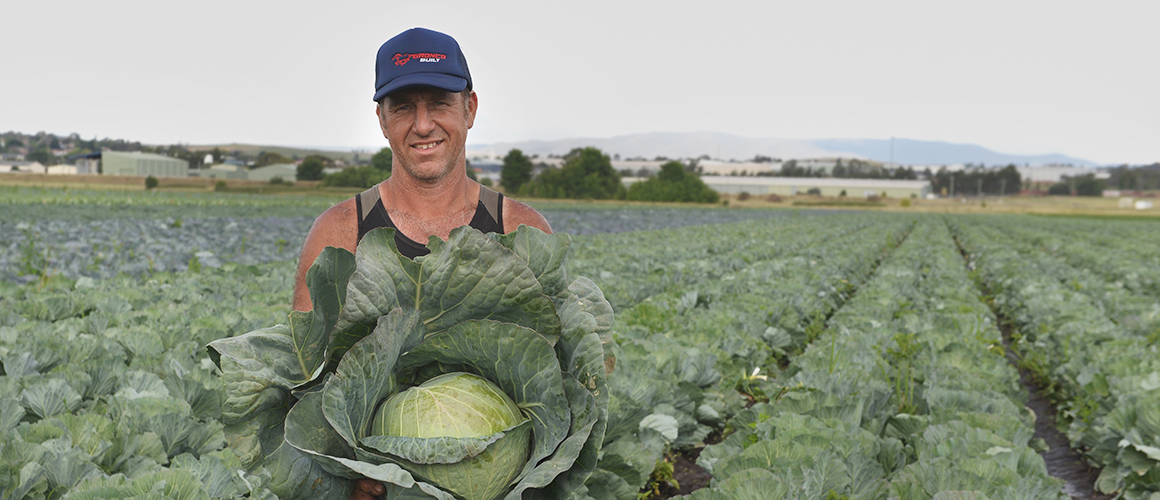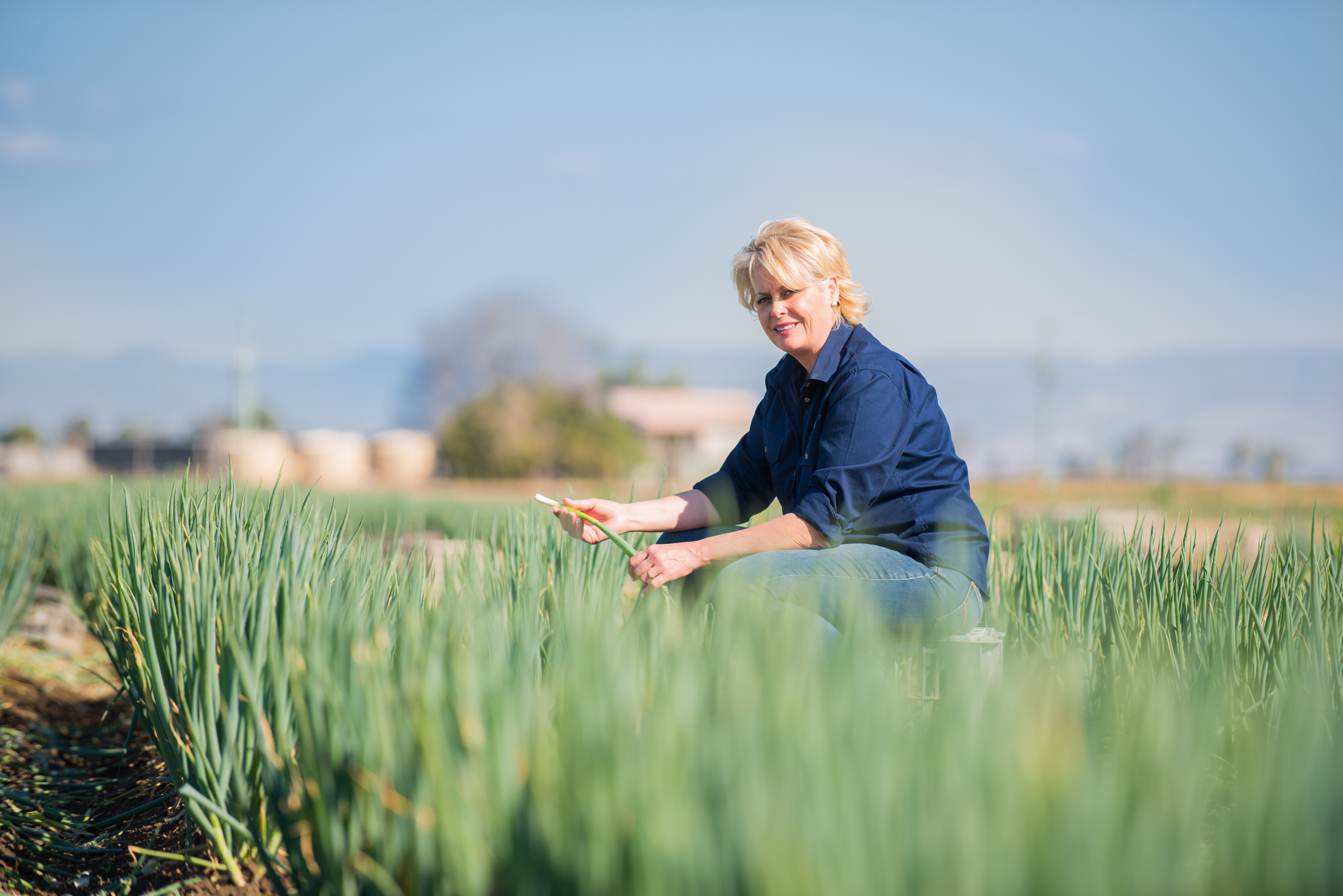
From city to farm: Janne Dipple brings a new perspective to horticulture
14 January 2019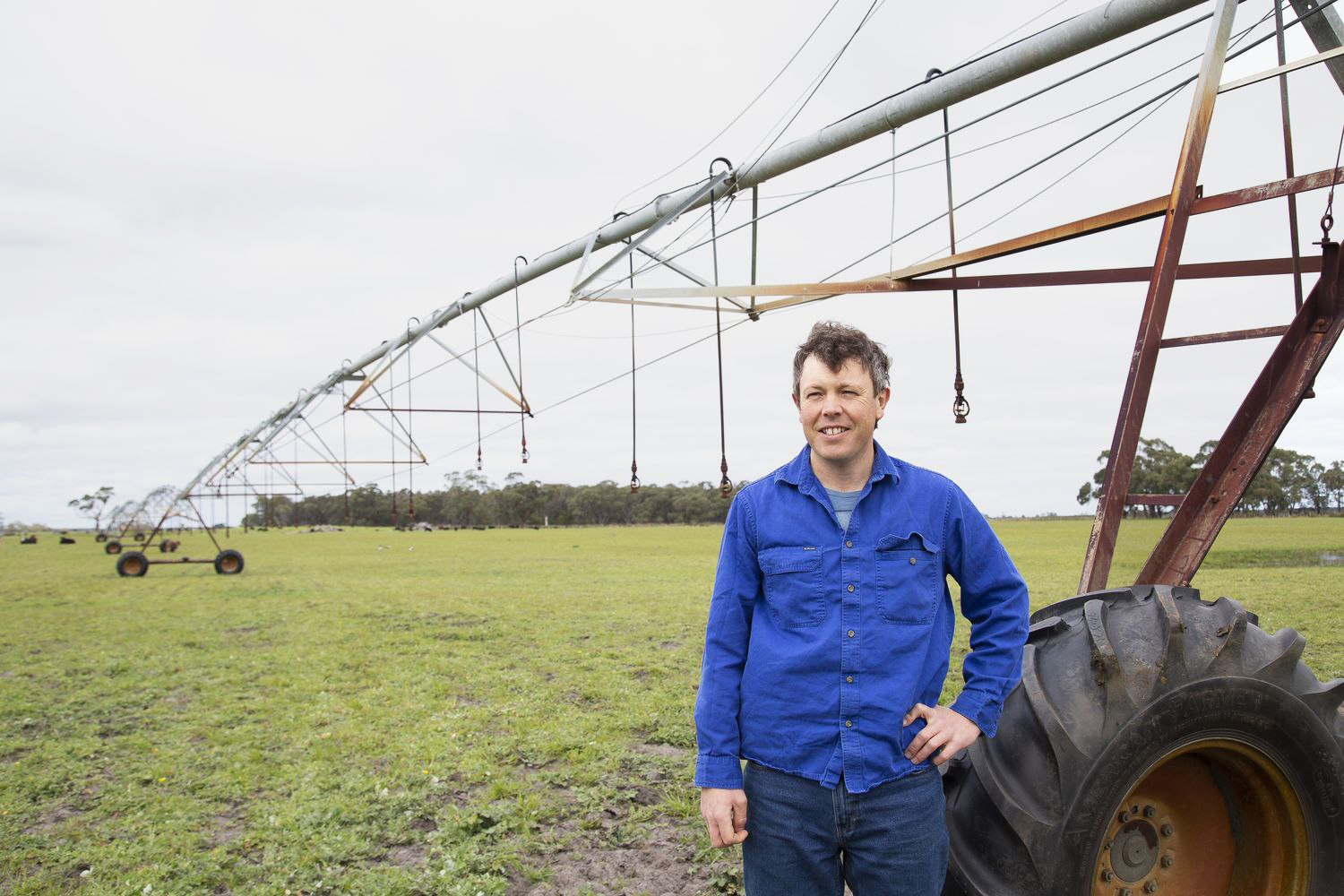
Hamish Henke: Promoting sustainable soil strategies
16 January 2019From growing vegetables on 40 acres to owning four properties totalling 440 acres, Frank and Frances Camilleri have certainly expanded their growing operation over the past 20 years. Meanwhile, the next generation is well-established with the couple’s six children developing the same passion for growing fresh produce. Four of Frank’s daughters – Deborah, Monica, Jennifer and Christine – spoke to AUSVEG about why they decided to follow in their parents’ footsteps.
Fast facts
Name: Deborah, Monica, Jennifer and Christine Camilleri
Location: Bathurst, NSW
Works: Camilleri Farms
Grows: Sweet corn, iceberg lettuce, cos lettuce, cabbage, cauliflower, pumpkin and potatoes
It is not unusual for multiple generations of vegetable growers to live on the land to provide Australian consumers with clean, fresh produce.
In decades gone by, it was generally men who inherited the farm while women worked in other industries such as nursing or teaching before giving up their careers to care for their children; living and working on the farm wasn’t viewed as an option. However, this has changed drastically today with many grandmothers, mothers, daughters, wives and female employees working across various aspects of horticulture – in both on- and off-farm roles.
Deborah, Monica, Jennifer and Christine Camilleri are a prime example of this generational change.
Under the guidance of their father Frank and mother Frances, these four ladies (all aged under 21) are taking the opportunity to cement their position in the vegetable industry and grow Camilleri Farms to ensure it has a sustainable future. They also work alongside their brother Matthew and sister Samantha.
Located in Bathurst, New South Wales, Camilleri Farms grows sweet corn, iceberg lettuce, cos lettuce, cabbage, cauliflower and pumpkin. Additionally, the family produces potatoes for the fresh market and the crisping and peeling sectors.
The Camilleri family first started farming on a 40-acre property in Wallacia, about 20 kilometres south of Penrith before buying two more blocks of land totalling 140 acres. Sixteen years later, in 2013, Frank and Frances sold the properties and moved to a 220-acre farm in Bathurst.
“Since then, we have purchased three more farms and now we have a total of 440 acres all under irrigation,” Frank says.
Growing vegetables on this amount of land requires a lot of hard work – and Frank’s six children have decided to stay on the farm to not only lend a helping hand, but to learn as much as they can so they can take over the day-to-day running of the business in the future.
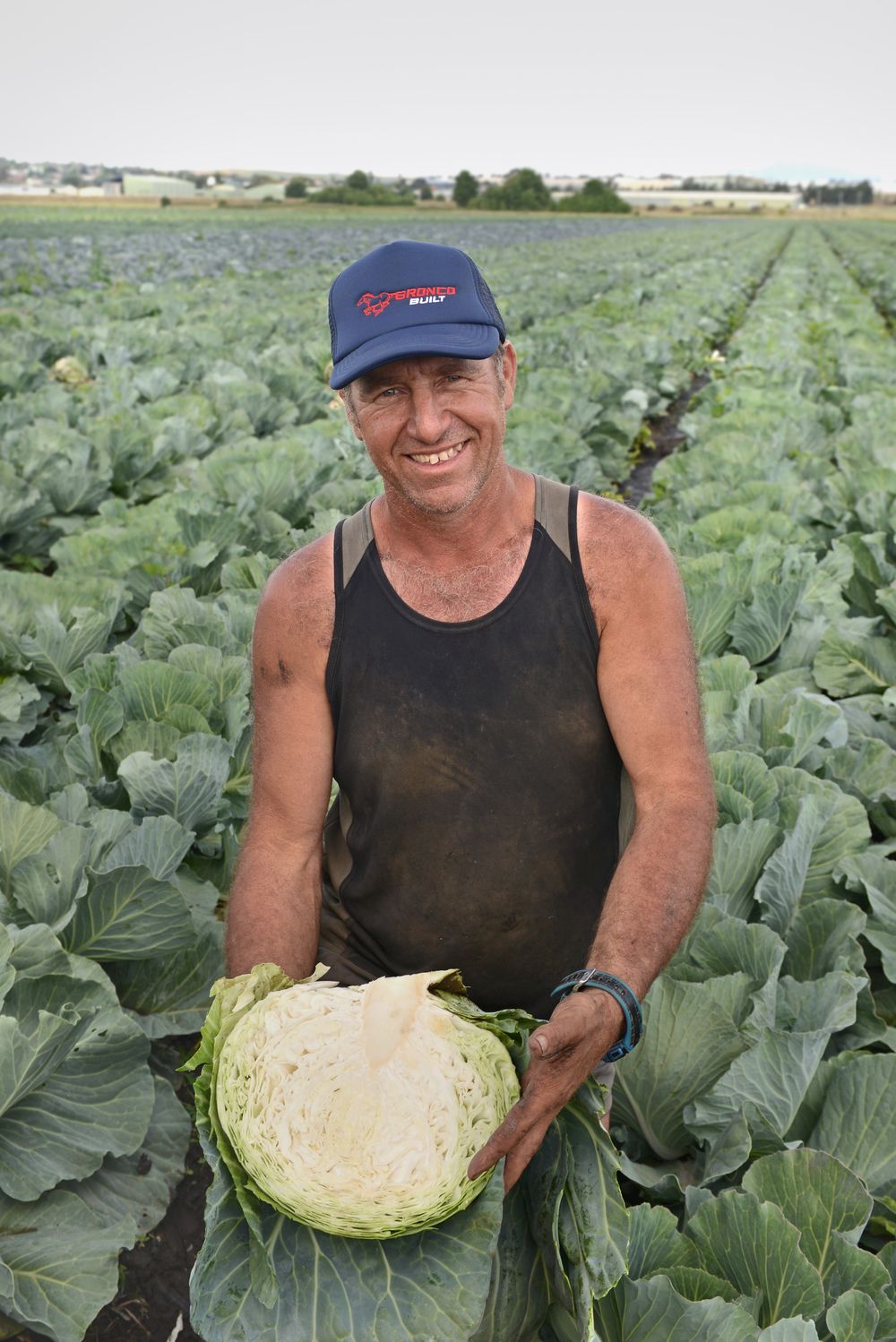
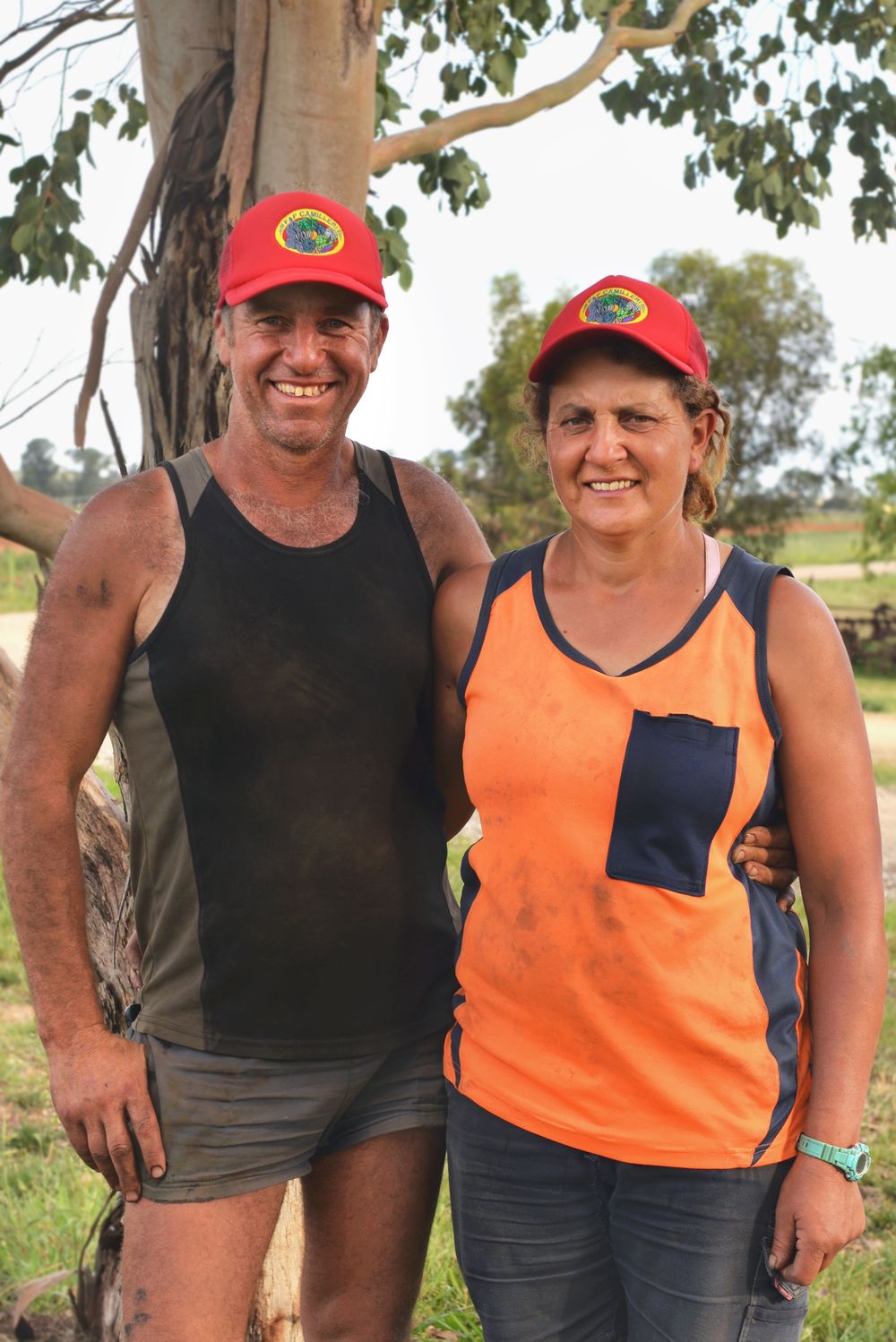
Industry trailblazers
Deborah Camilleri is head of irrigation, and also has a number of roles including harvesting, seeding corn, preparing the ground, planting and general maintenance.
“I’ve always wanted to stay on the farm. I considered the challenges of being on the farm, but it’s rewarding and also great working outdoors. If you enjoy being outdoors and growing food, it’s a good career path to follow,” she says.
Monica Camilleri manages a harvest crew, as well as fertilising and hilling potatoes; maintaining weeds around the farm; loading trucks; and planting lettuce and brassicas.
“There is a wide range of jobs to do and you never get bored. You also get to see vegetables grown from seed to full maturity,” Monica says.
While the ladies support each other on-farm, they admit to a bit of friendly competition and challenging each other in their jobs.
“We race each other to see who will perform the better job. This is to keep us motivated,” Jennifer Camilleri says.
Jennifer’s role includes harvesting, loading trucks, planting crops and general machinery maintenance. She explains that working together has further advantages for the ladies.
“It is very beneficial because when you need a hand with something, there is always help available.”
Christine Camilleri plants brassicas and lettuce while assisting with harvesting, seeding potatoes and loading produce on trucks. Christine is reaping the rewards of working on-farm, particularly alongside her three older sisters, whom she looks up to.
“Working in this industry is considered very physically and mentally demanding, which is a challenge but definitely rewarding. We absolutely love working outdoors,” Christine says.
“You will never get bored doing this job. There is always something different to do or something new to try.”
Encouraging young people to join the vegetable industry is an ever-present challenge and it is one of the reasons the Camilleri daughters decided to pursue the family trade. They reiterated that there are many attractive aspects to working in the vegetable industry; Deborah says that being hands-on with growing your own food and operating tractors is one highlight, while Jennifer echoed Monica and Christine in saying that there are plenty of jobs to choose from.
"You will never get bored doing this job. There is always something different to do or something new to try."
A shifting landscape
Vegetable growers from across Australia encounter ongoing issues that affect production and business operation, and the Camilleri family isn’t immune to these issues.
Marketing produce is a challenge and to combat this, the business tries to receive as many contracts as it can in what can be a competitive environment.
Disease is also a major issue facing growers, and maintaining disease resistance and the ongoing sustainability of the farm is important. Steps taken by the Camilleri family include resting paddocks and rotating crops as often as possible.
There have also been many changes over the past 20 years since Frank and Frances started growing veggies in Wallacia.
“The farm has evolved over time by growing in size. The difference is that it is more competitive and you have to grow more to make the same amount that we were earning when we first started on the farm,” Jennifer says.
Deborah points out that the increase in land size has meant that machinery has had to be upgraded to accommodate the increased work load.
“When we first started, we used a two-row planter for one bed at a time. We also harvested the crops by hand, but now we have harvest aids,” she says.
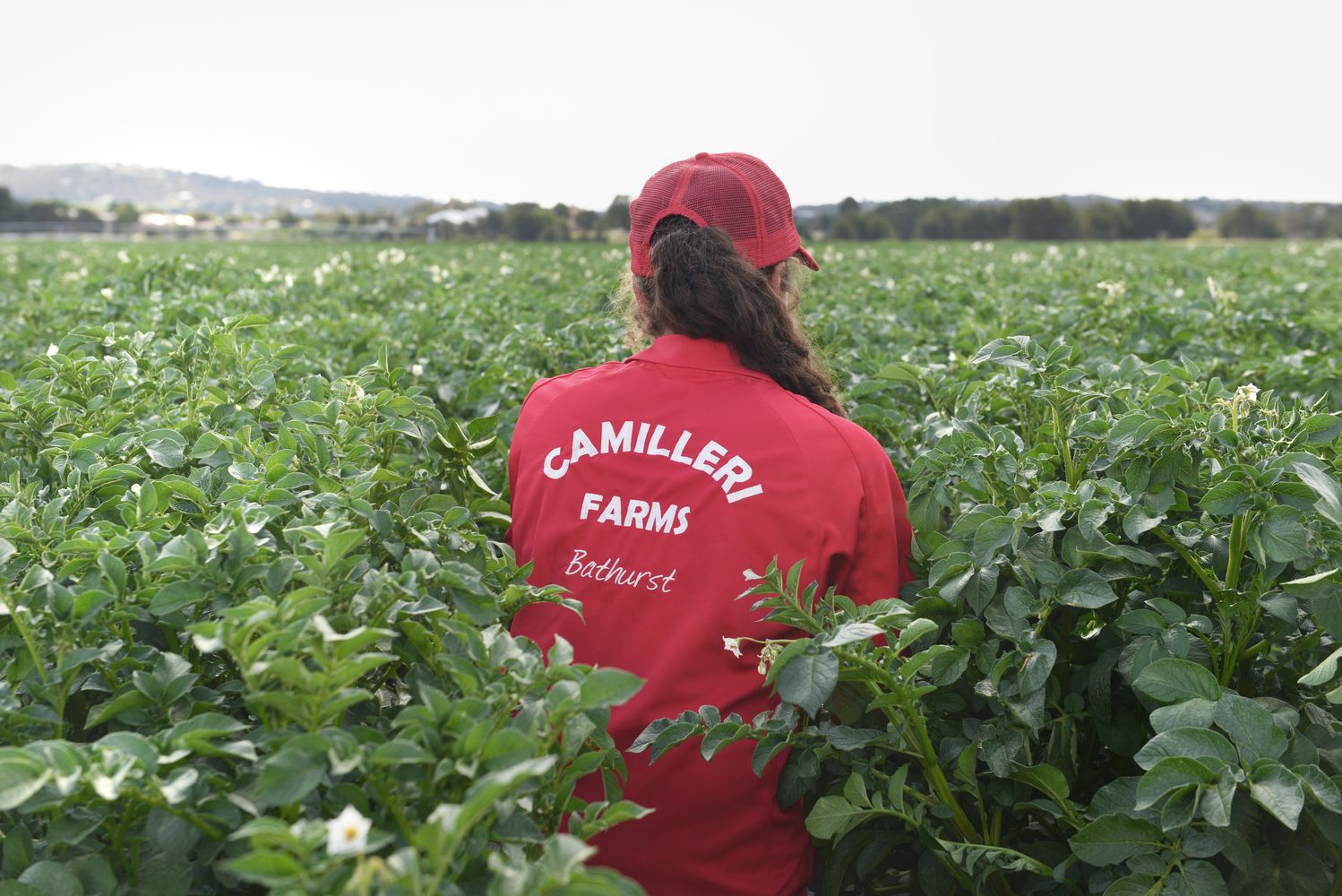
Looking ahead
They may only be between 16-20 years old, but the Camilleri daughters have high hopes for the future – including establishing their own farm. However, at the moment the focus is on Camilleri Farms and its business direction.
“Hopefully our current farm expands and we grow more crops for processing,” Monica says.
Frank’s advice for his daughters is to “work smarter, not harder”. He also acknowledges the work that all six of his children contribute to the growing operation.
“My proudest achievement is raising six hard-working kids who are interested in the farm, as well as how much the business has grown since we first started.”
This grower profile first appeared in the leading magazine for the Australian vegetable industry, Vegetables Australia. If you’d like to subscribe to receive a new edition of Vegetables Australia in your mailbox every two months, use our online subscription form!
Photography credit:

